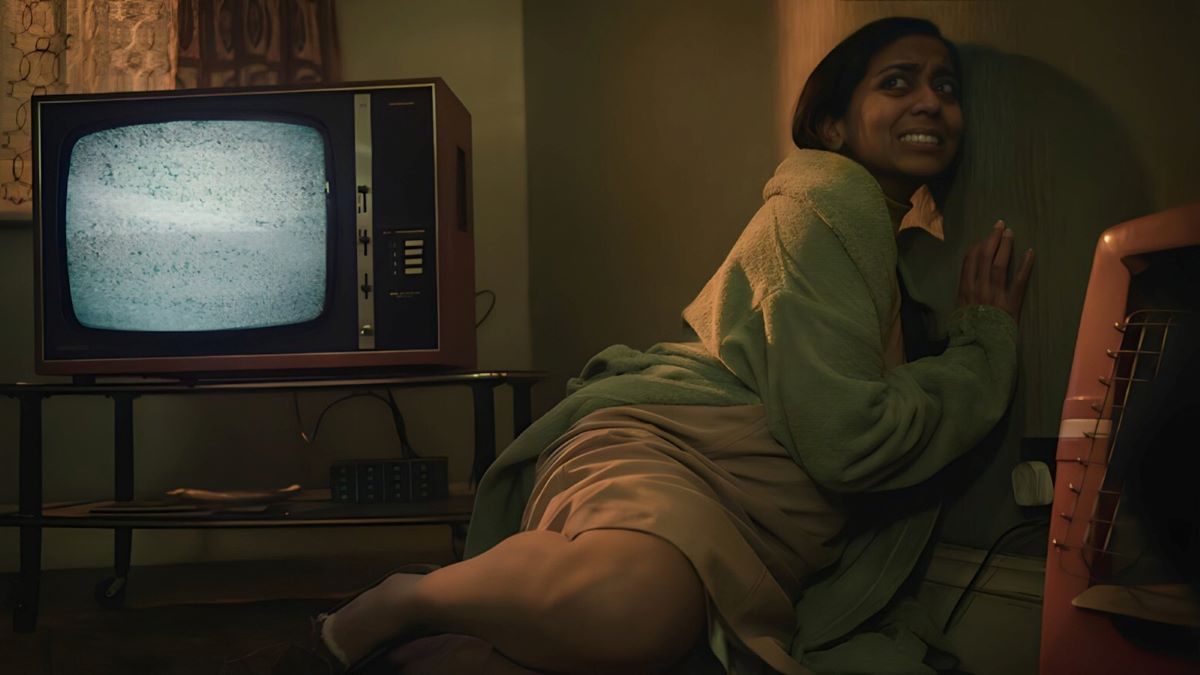After waiting through a full four-year stretch between the release of season five and season six of Black Mirror, many fans weren’t sure what to expect, but most were looking forward to getting something, anything to feed their addiction to content by the British sci-fi genius and creator of the series, Charlie Booker. Still, in its past five seasons, Black Mirror has been distinctly known for its technology-driven dystopic future plots, made sharp with twists that could only be possible in a time that is yet to come.
Season 6 did not precisely follow the futuristic technology-gone-wrong mold that fans have come to expect as a given, however. Four of five episodes were set in past years, and one, “Joan is Awful,” was in the present. Yet even without that consistency, they have the enduring tone of Black Mirror episodes, which in an interview with Vanity Fair, Booker describes as “episodes that are really distinctly different but psychologically linked.”
One episode, “Demon 79,” is marked as a “Red Mirror” episode in its opening credits, is set in 1979, and doesn’t rely on any technology other than a rotary phone. Booker says, “The idea [with the “Red Mirror” label] was to do an alternative horror companion to Black Mirror.” It is, incidentally, a rather bloody episode for the show’s standards, but is far outstretched in that respect by others in season 6.
Booker explains that when he found he was able to make his “Red Mirror” episode link back to that same psychological tone as his other Black Mirror episodes, he realized he didn’t need to be “locking” the show into a “future with lots of chrome and glass and holograms.”
This sense of freedom leads to another episode, “Beyond the Sea,” set in an alternate 1969, where United States astronauts have access to technology that we still don’t. Booker describes the feeling of these alternate pasts as “…a sort of lost science fiction story of the 60s [where] the characters within it are behaving like people of their era, not of our era. Is there a term for that? Retrofuturistic? Psychedelic steampunk?”
Arguably the goriest episode, although all of them in season six are violent by the total series average, is “Loch Henry,” set in a plausible 1990s in rural Scotland, and features grisly sexual torture and murders caught on old-school VHS tapes. The found footage of the deeds was one of only two parts of the series that I elected to fast forward through, though I made sure I didn’t miss any crucial dialogue. The other section I just couldn’t stomach was another gruesome murder scene from “Beyond the Sea,” where a father has to watch his family being killed because of something he did, and man, that kind of physical and psychological torture mixed together is just too sadistic for me. I love a good creepy story, but I am sensitive and like flowers and fuzzy pillows, and cozy crime stories sometimes, okay?
Many fans are certainly left wondering about the reasoning for the major shift from futuristic techy twists to historic gory explorations. And Booker addresses that question somewhat while talking to Vanity Fair, saying, “I was just trying to experiment a bit with what Black Mirror was. I don’t want to sit here feeling like I’m in a box where I have to write an episode about NFTs or whatever’s on the tech pages today. That’s not what the show was ever intended to do. If you look at our first episode, you can tell it was obviously designed to be startling and surprising and weird. So I was trying to sort of reconnect a bit to that.”
As a fan, I can’t help but think about the timing of the season’s release vis-à-vis the last one. Season 5 came out in 2019, and season 6 just came out in June. We went through a whole pandemic, huge swaths of the world have caught fire over and over again, the United States went through an insurrection attempt … After witnessing catastrophe after catastrophe, could Booker be signaling that our dystopian future is already here? Or that the things we’ve done in the past have irrevocably led to gore and horror? Maybe. And well, he wouldn’t exactly be wrong, would he?
(featured image: Netflix)









Published: Jun 26, 2023 07:25 pm